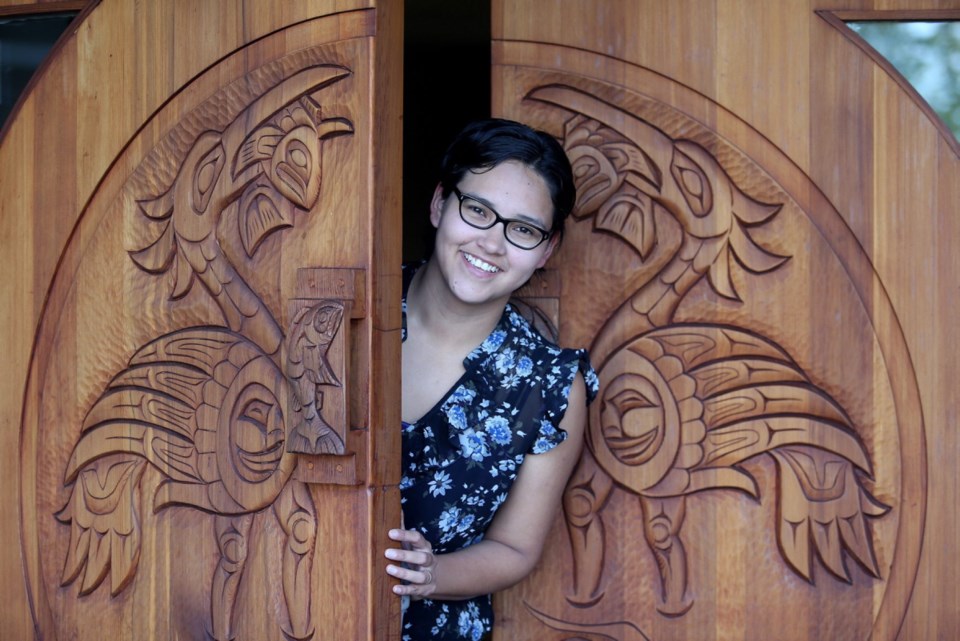With three young children, a history of trauma and no desire to re-enter the retail workplace, Tiffany Joseph found hope in an employment and life skills program tailored for aboriginal women on their own turf.
“One thing that inspired me was to walk into a room with other indigenous women, who had experienced trauma, and share in a safe space,” said Joseph, 29, at the Tsawout First Nation band centre.
She is a graduate of the first Bridges for Women satellite program for First Nations women.
The Victoria society has helped local women who have experienced trauma re-enter the workforce for the past 27 years. Recently, they’ve focused on reaching women outside the downtown core with new programs like the one at Tsawout, a Westshore program and one online.
The Tsawout First Nation approached Bridges about a program for aboriginal women and started their first class in February, which Joseph was in. The Westshore program stemmed from client feedback.
“We found there was a real need in the western communities. Places like Sooke are really far from downtown, especially on the bus,” said Dianne de Champlain, co-ordinator of the Westshore Bridges program, which started its first six-month class in the summer and also offers workshops.
“It’s a mixed group. A lot of young moms trying to get back into the workforce and older women, too.” De Champlain said the program is able to reach women who wouldn’t be able to come downtown because their childcare is in the Westshore, for safety reasons and because transportation is difficult.
“This is such a big catchment area, but there are not a lot of resources,” said de Champlain, noting a lack of safe houses in the region.
Joseph said she likely wouldn’t have taken a program offered as far away as downtown. She heard about the Bridges satellite course through a flyer at her grandmother’s house on the Tsawout reserve. She lives in Tsartlip, where her husband is from, but grew up on the on a Skwxwú7mesh Úxwumixw (Squamish) reserve in West Vancouver.
The couple moved to the Island last year with their three young children (ages seven, three and one) after a stressful experience — which Joseph didn’t want to elaborate on.
“We wanted a fresh start in a place where he and I both felt safe,” she said. “I knew I needed to do something, but I was so emotionally raw.”
After working as a salesperson in a portrait studio, she also wanted a career closer to her values.
“Sales is hard. I’m an introvert. I never felt comfortable with pushing consumerism,” said Joseph, who studied digital filmmaking at Capilano College for one year before her first pregnancy. “There’s so much I want to do. I want to be able to contribute to a positive environment of indigenous communities.”
Joseph said she was surprised the six-month course revealed where childhood and recent trauma was holding her back, and looked at common issues among aboriginal women.
“Having a focus on boundaries is so important,” she said. “Our culture is a generous one. We give to our children, our elders, our families. We value that, but in today’s world, it’s also important to take of yourself.”
The program inspired Joseph to start her own business, filming traditional stories and knowledge for First Nations people. She bought a camera with a grant from the Squamish Nation Trust and is taking part in a native plant program through Tsawout and Royal Roads University, which she hopes leads to filmmaking ideas and work.
• OPEN HOUSE: Bridges for Women hosts an open house on Thursday, from 5:30 to 7:30 p.m. in suite 320 at 1175 Cook Street.



